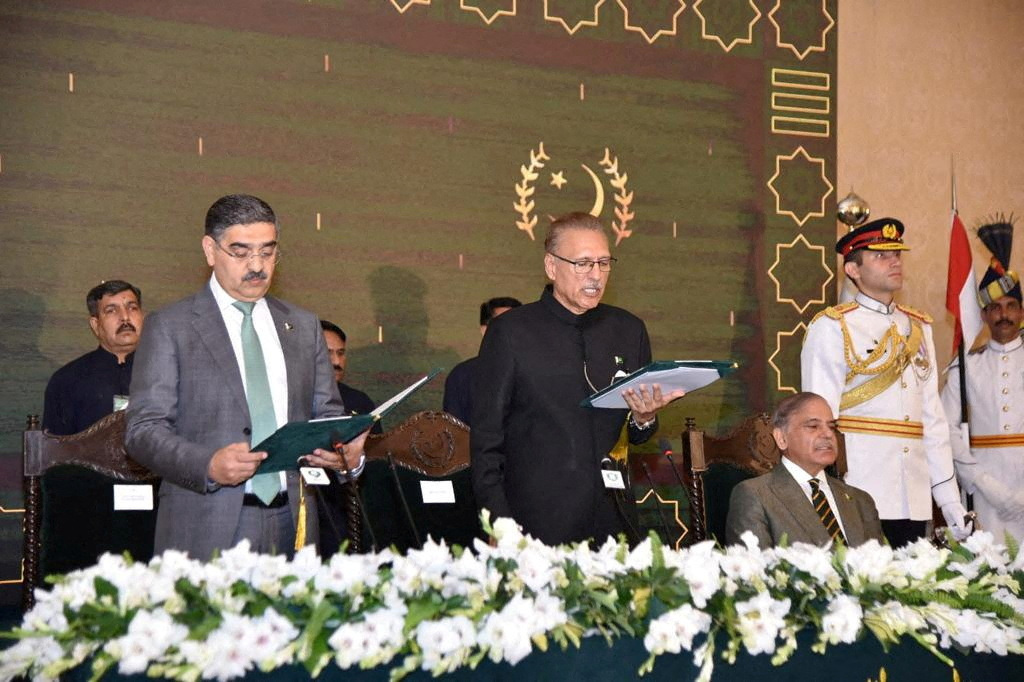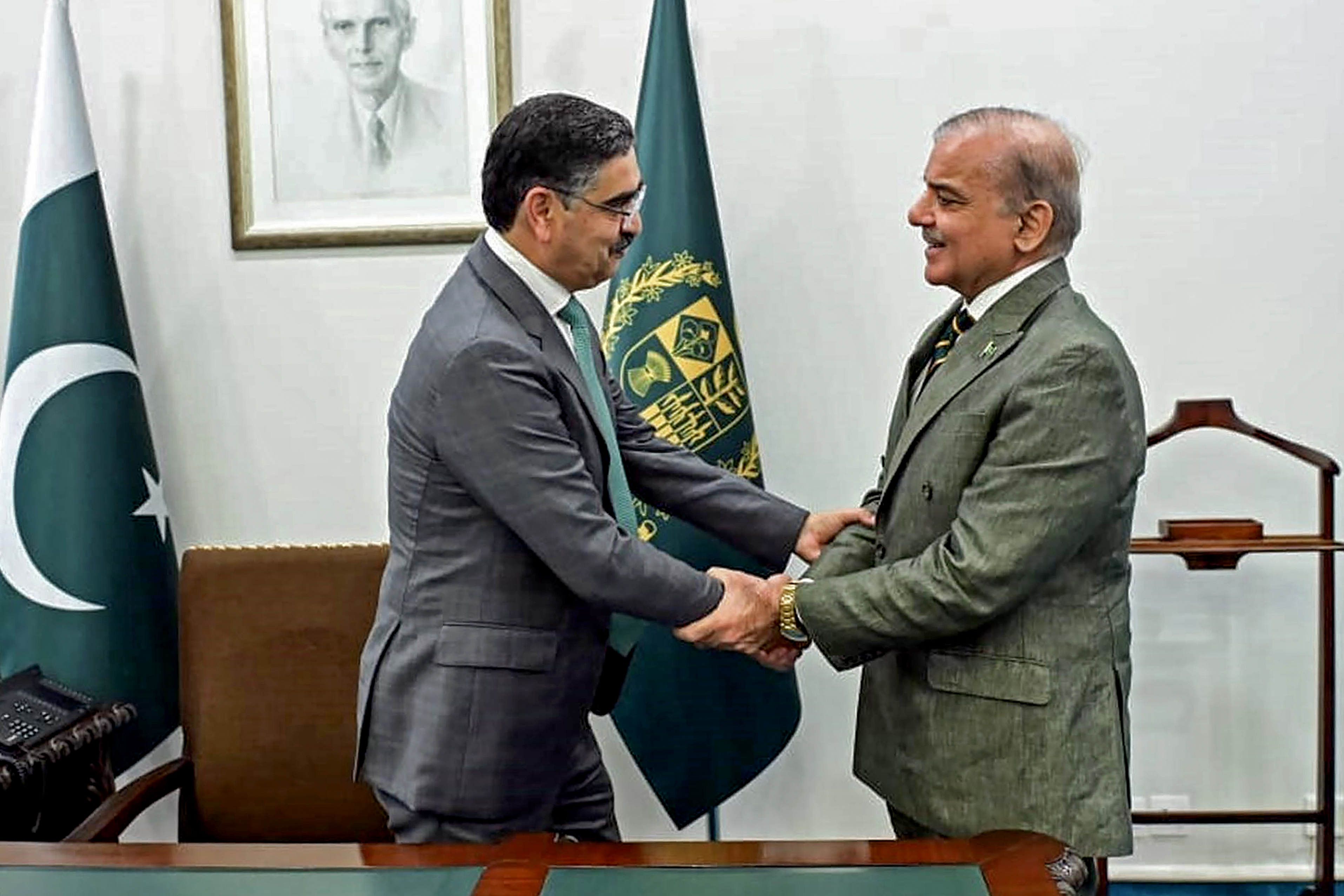
Islamabad, Pakistan – With less than three months before the scheduled general elections, former lawmaker Anwar-ul-Haq Kakar was named Pakistan’s eighth caretaker prime minister on August 14.
Kakar, 52, takes charge of the country of 240 million people at a crucial juncture and is expected to name his caretaker cabinet in the coming days.
Who is Pakistan’s interim PM?
Kakar is the youngest interim PM in the country’s history and is considered a relative newcomer in Pakistani politics.
An ethnic Pashtun belonging to the well-known Kakar tribe, he hails from Balochistan, Pakistan’s largest and most impoverished province, which has been facing decades-long insurgency against the state by nationalist groups.

He was born in the provincial capital Quetta and entered politics at the turn of the century.
He previously served as a spokesperson for the Balochistan provincial government in 2013.
Kakar was also one of the founders of the Balochistan Awami Party (BAP) created in 2018. Later that year, he became a senator in the upper house of Pakistan’s parliament.
Kakar is reputed to have close ties with Pakistan’s powerful military establishment. Critics have accused him of toeing the military’s line, especially in matters related to security and human rights in Balochistan.
Fawad Chaudhry, a former information minister, said that while Kakar and BAP’s links with the establishment are well-known, he remains a “very learned man”.
“He is a man who has a very keen eye on national security and militancy-related issues. He is a frequent lecturer at the National Defence University and, in strategy circles, he is very well reputed,” Chaudhry told Al Jazeera.
What are his immediate challenges?
Pakistan is mired in a plethora of problems on various fronts.
The economy is in the doldrums and barely averted default when it signed a $3bn deal with the International Monetary Fund in July.
While close allies such as China, Saudi Arabia and the United Arab Emirates are promising investment in the coming days and financial assistance for the short term, Pakistan is scheduled to make payments of more than $80bn over the next four to five years.
The country is also facing a resurgence in violent attacks, particularly in northwestern Khyber Pakhtunkhwa province as well as Balochistan.
A day before Kakar took the oath of office, a convoy of Chinese workers was targeted by a rebel group in Gwadar city, where a massive port is being built under the China-Pakistan Economic Corridor project.
Perhaps his biggest challenge will be to deal with the ongoing political and constitutional crisis that has been brewing for months, and to fulfil the responsibility of holding general elections as scheduled in a transparent manner.
The elections are slated to be held in November. The outgoing government also approved the results of Pakistan’s census, which took place in May.
While the constitution says elections must take place no later than 90 days after the dissolution of the assembly, it also says that polls must be held according to constituency delimitation, which must be marked according to the latest census.
The Election Commission of Pakistan, the polls’ supervisory body, says it requires at least four months to complete new delimitations, which means elections may not be held this year, leading to a potential constitutional crisis.
Kakar’s government will also have to deal with the matter of former PM Imran Khan, who was arrested earlier this month on charges of corruption. Khan and his Pakistan Tehreek-e-Insaf (PTI) party were ousted in April 2022 through a parliamentary vote of no confidence.
What powers does a caretaker government have?
Pakistani law states that an interim setup is primarily meant to perform one fundamental task: conducting free and fair elections, along with running the day-to-day operations of the government.
However, due to a raft of legislation in July by the outgoing government, amendments to the laws have given unprecedented powers to an interim government, allowing it to make major policy decisions.
This has led observers to question whether empowering the caretaker setup is a ploy to lay the ground for an extended government instead of heading into polls.
Chaudhry, the former information minister, says that according to Pakistani law, the “de jure position of an interim setup” is to hold elections while not touching any policy matters.
He added that this caretaker government could be the most powerful one due to backing by the country’s establishment.
“We may see Kakar taking decisions on economy and security due to the establishment’s backing,” Chaudhry said. “Currently in Pakistan, democracy and constitution are not the primary features of the system. I don’t think Kakar will be able to protect and uphold them.”







